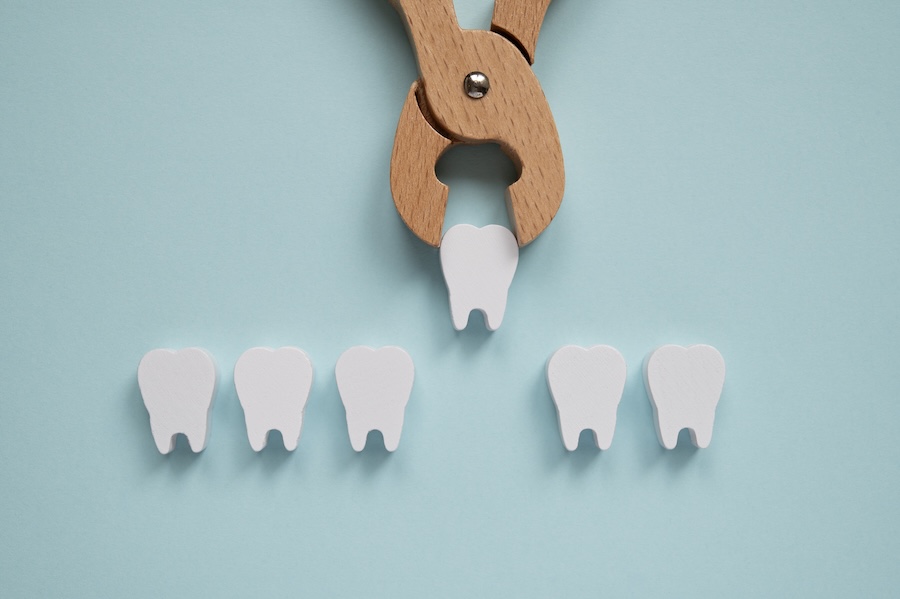
After a tooth is removed, the most obvious change is the gap in your smile. Depending on the location, this space can affect more than just appearance. Missing teeth make chewing harder, sometimes leading you to favor one side of your mouth. Over time, nearby teeth can drift into the open space, creating bite problems or even jaw pain.
The gap may not bother you at first, but leaving it unfilled can lead to long-term challenges with function and confidence. That’s why many patients choose to replace a missing tooth sooner rather than later.
The Empty Space Below the Gums
Something else happens beneath the surface. Your teeth are supported by roots anchored into the jawbone. Once a tooth is removed, the bone in that area no longer receives stimulation from chewing. Without that natural pressure, the bone begins to shrink, a process called resorption.
This gradual change doesn’t just affect the jaw—it can alter facial structure over time. Sunken cheeks or a collapsed bite are often the result of bone loss after extractions. Protecting the bone with replacement options like dental implants helps preserve both function and facial appearance.
How Other Teeth Start to Shift
Teeth are meant to work together like a team, each holding its place in the arch. When one tooth goes missing, the balance is thrown off. Neighboring teeth often tip or drift into the open space, creating crowding or gaps in other areas. The tooth in the opposite arch may even “super erupt,” meaning it starts to move downward or upward into the empty spot.
These shifts can change the way your bite fits together, putting stress on the jaw joint and increasing the risk of uneven wear, gum problems, or further tooth loss.
Options to Fill the Space
However, the good news is that dentistry offers several ways to address the empty space. Dental implants are a strong, long-lasting option that replaces both the root and crown of the missing tooth. Bridges can also restore function and appearance by using neighboring teeth for support. For patients missing several teeth, partial or full dentures may be recommended.
Each solution has its benefits, and the right choice depends on your goals, budget, and oral health.
Replacing Missing Teeth in Columbia With Dr. Gary Bethea
At Bethea Family Dentistry in Columbia, SC, Dr. Gary Bethea and his team help patients understand what happens after tooth extraction and how to prevent future complications. Whether you’re dealing with a recent extraction or have had a missing tooth for years, we’ll guide you through the best replacement options to restore your smile and protect your jawbone.
Don’t leave that empty space unattended. Call Bethea Family Dentistry today to schedule a consultation and take the next step toward a healthier, more confident smile.
